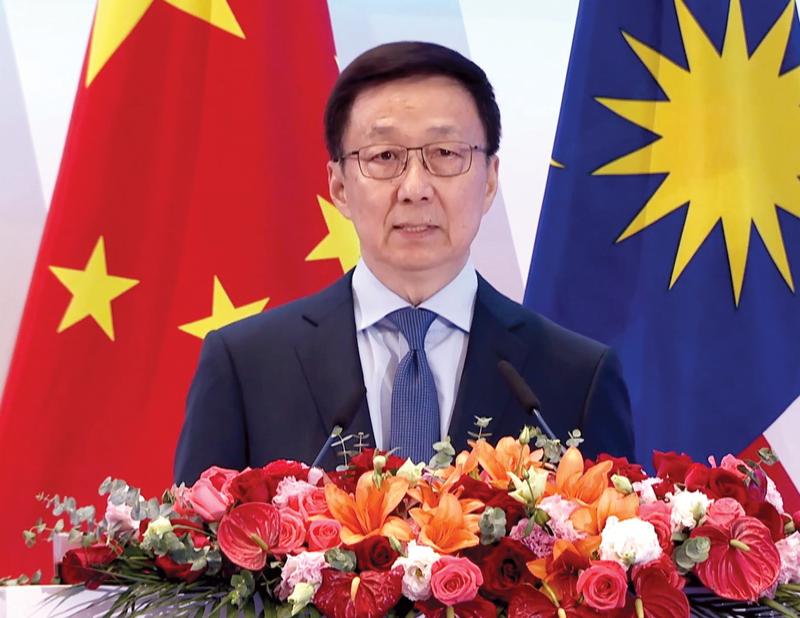 Han Zheng, Chinese vice-premier. (PHOTO PROVIDED TO CHINA DAILY)
Han Zheng, Chinese vice-premier. (PHOTO PROVIDED TO CHINA DAILY)
The 19th China-ASEAN Expo in Nanning, southern China, has helped to promote economic and trade cooperation, ensure the high-quality implementation of the Regional Comprehensive Economic Partnership, or RCEP, and made advances toward an improved version of the China-ASEAN free trade zone.
The expo and the China-ASEAN Business and Investment Summit in Nanning, capital of Guangxi Zhuang autonomous region, was held between Sept 16 and 19.
A total of 267 domestic and international deals worth more than 400 billion yuan ($57 billion) were signed, up 37 percent compared to last year, said Wei Zhaohui, secretary-general of the expo’s secretariat.
Eighty-eight online and offline economic and trade events were held in areas including new high-end metal materials, health, tourism and culture, new green chemical materials, and mechanical equipment manufacturing, Wei said.
At the opening ceremony on Sept 16, Vice-Premier Han Zheng called on China and the Association of Southeast Asian Nations, or ASEAN, to take the opportunity of the implementation of the RCEP to build a closer community with a shared future.
Speeches were delivered via video by Malaysian Prime Minister Ismail Sabri Yaakob, Cambodian Prime Minister Samdech Techo Hun Sen, Philippine President Ferdinand Romualdez Marcos, Lao Deputy Prime Minister Sonexay Siphandone and Singapore’s Deputy Prime Minister and Coordinating Minister for Economic Policies Heng Swee Keat.
The expo also heard from Thai Deputy Prime Minister and Foreign Minister Don Pramudwinai, Vietnamese Deputy Prime Minister Pham Binh Minh and ASEAN Secretary-General Lim Jock Hoi.
Han, who is also a member of the Standing Committee of the Political Bureau of the Communist Party of China Central Committee, said China will increase the import of high-quality products, particularly agricultural products from the ASEAN countries.
He called on China and the ASEAN countries to promote interconnectivity and the joint construction of a new land-sea trade corridor.
He also called for enhanced cooperation on a range of environmental issues.
Han said the two sides should enhance the research, development and production of COVID-19 vaccines and boost people-to-people exchanges.
The RCEP is unlocking the potential of China-ASEAN cooperation and opening opportunities for investors on all sides.
Remarks of foreign leaders at the opening ceremony
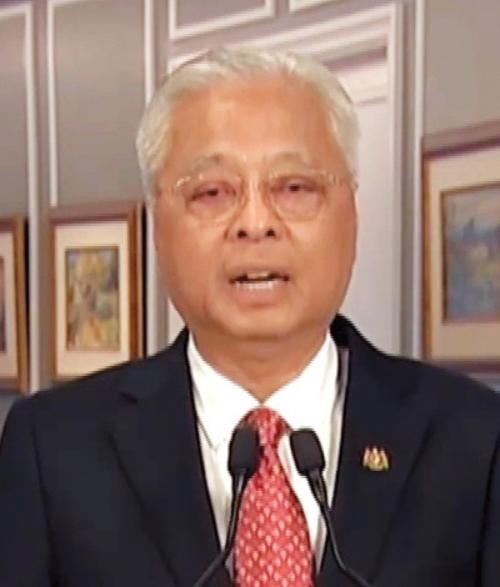
Malaysia
Malaysian Prime Minister Ismail Sabri Yaakob said via video that the RCEP, which was signed after eight years of negotiation, demonstrates a positive sign to the world that ASEAN and China, together with other RCEP partners, are committed to economic integration, ensuring that transnational supply chains are not affected, and keeping markets open amid the ravages of a global pandemic.
“I am pleased that this agreement will provide immense opportunities to bolster regional businesses and supply chains, as well as diversify the production network for seamless integration toward global economic recovery and growth,” said Ismail Sabri.
He also said the ASEAN-China Free Trade Agreement, or ACFTA, remains as the foundation of ASEAN-China relations and continues to play an important role in facilitating trade between the two sides.

Cambodia
ASEAN-China economic cooperation has accomplished many fruitful achievements since the signing of the ASEAN-China Framework Agreement on Comprehensive Economic Cooperation in 2002 and other free trade and investment agreements, said Cambodian Prime Minister Hun Sen via video.
“On the basis of the successful implementation of the ASEAN-China Free Trade Agreement version 1.0 and 2.0 over the past years, Cambodia would like to support the initiative to upgrade this agreement to the new version 3.0,” said Hun Sen.
Hun Sen said he believes that both sides must pay more attention to further expanding and deepening the scope of their economic cooperation, particularly focusing on minimizing trade barriers in goods, services and investment.

The Philippines
China is the top trading partner, biggest source of imports and the seventh-largest source of foreign direct investment for the Philippines, said the country’s President Ferdinand Romualdez Marcos via video.
The Philippines recorded GDP growth of 7.4 percent in the second quarter of 2022, one of the highest in the region, said Marcos, attributing the growth to renewed consumer spending, government projects and the dynamic performance of the manufacturing and service sectors.
“As we move forward and move toward stronger ties with China, we hope you can join the Philippines as it embarks on a mission to apply science, technology and innovation to make our products and services more competitive in the global market, and pave the way for our country’s industrial transformation,” said Marcos.

Laos
The RCEP agreement is one of the most important steps that will boost economic recovery and strengthen regional cooperation, said Lao Deputy Prime Minister Sonexay Siphandone via video.
Sonexay said the RCEP has become the biggest free trade agreement in the world, accounting for a third of global GDP.
He also said he is confident that the RCEP will serve as an essential trade agreement to address economic recession as well as contribute to the expanding flows of trade, investment and services through resilient regional value chains that are integrated into the implementation of the ASEAN-China free trade area.

Singapore
“To build a better shared future for all of humanity, we must strengthen cooperation, because no country can take on these challenges alone,” said Singapore’s Deputy Prime Minister and Coordinating Minister for Economic Policies Heng Swee Keat via video.
Noting more cooperation platforms like the ASEAN-China partnership are needed, Heng said economic cooperation is a key pillar for strong partnership as both sides work toward greater regional economic integration.
“ASEAN and China are now each other’s top trading partner. Our regions are part of the RCEP, the largest trading block in the world,” said Heng.
Heng said ASEAN and China can strengthen partnership in two areas, namely strengthening connectivity and building a digital and green economy for the future.
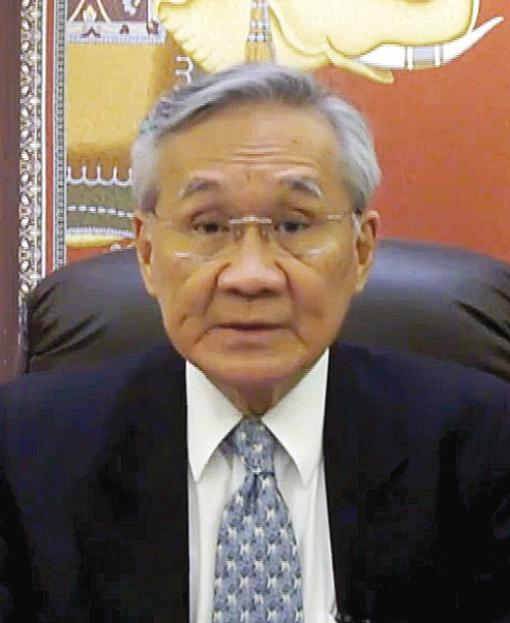
Thailand
“China, as a responsible major power, can play a vital and constructive role in the development of the region,” said Thai Deputy Prime Minister and Foreign Minister Don Pramudwinai via video.
“Strong ASEAN-China partnership will create a conducive environment for regional economic recovery and long-term resilience.”
Don said both sides must support the full and effective implementation of the RCEP agreement, under which both Thai and Chinese entrepreneurs are reaping mutual benefits.
Between January and April this year, Thai exporters had applied for RCEP certificates of origin worth $204 million, said Don.
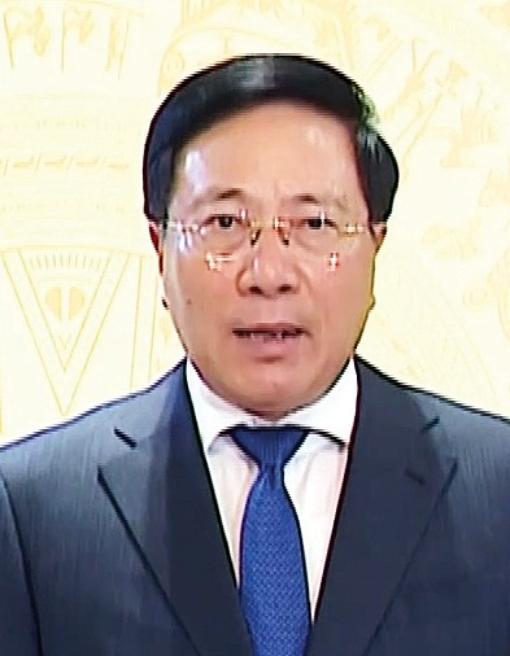
Vietnam
Besides achievements made in trade and economic exchanges, the bilateral cooperation between ASEAN and China has also been strengthened in areas such as pandemic control, poverty reduction, culture, education and people-to-people exchanges, said Vietnamese Deputy Prime Minister Pham Binh Minh via video.
Minh said ASEAN countries and China should continue to enhance their cooperation in dealing with challenges and accelerate sustainable post-pandemic recovery.
In terms of cooperation under the RCEP and the ACFTA, Minh said Vietnam welcomes China’s continued increase in its import of goods, particularly high-quality agricultural products, from Vietnam and other ASEAN countries.
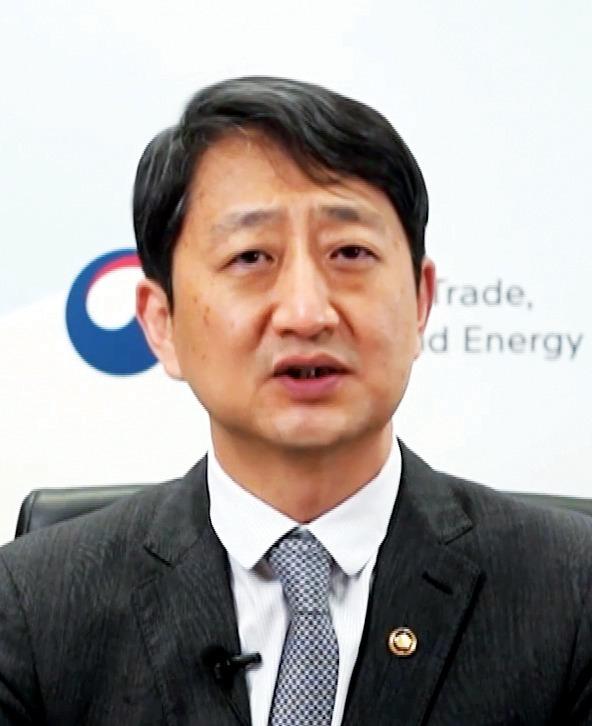
South Korea
Since the establishment 30 years ago of their diplomatic relations, South Korea and China have maintained close economic and trade cooperation, with China becoming the country’s largest trading partner and South Korea being China’s third-largest trading partner, said South Korea’s Trade Minister Ahn Duk-geun via video.
Ahn said the free trade agreements between South Korea, China and ASEAN provided strong support for economic cooperation. In addition, the RCEP, which all three parties have joined, provides greater opportunites for regional multilateral cooperation.
“We should continue to enhance communication and exchanges on the basis of mutual respect,” said Ahn, adding that despite the disruption of the pandemic, South Korea has opened “fast lanes” with China and several ASEAN countries to assist the exchanges of corporate personnel.

Myanmar
Noting that China is his country’s largest trading partner and an important source of investment, Myanmar Minister for Commerce Aung Naing Oo said via video that he hopes China, ASEAN and other RCEP members can work together to revitalize the regional economy.
“I would like to reiterate that we all have to work together to liberalize the nontariff barriers in trade in goods and services that are essential to boost and facilitate our trade,” said Aung Naing Oo.
With the increased use of digital technologies, he said it is also important for ASEAN and China to enhance cooperation in information technology.

ASEAN
Despite dampened global economic activities during the pandemic, ASEAN and China demonstrated resilient and positive growth in 2021, said ASEAN Secretary-General Lim Jock Hoi via video.
“For the first time, ASEAN has become the largest trading partner to China, while China remains our largest trading partner,” said Lim.
Lim said the advancing of the ASEAN-China Free Trade Agreement and the entry into force of the RCEP will provide significant opportunity to the regional business community to reimagine and transform their strategies.
Xinhua contributed to this report.
Contact the writers at kelly@chinadailyapac.com


